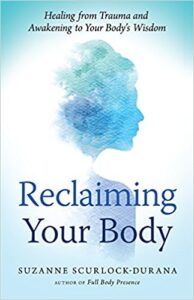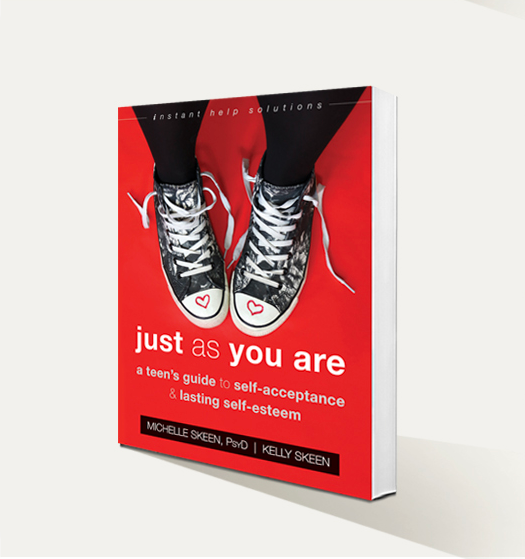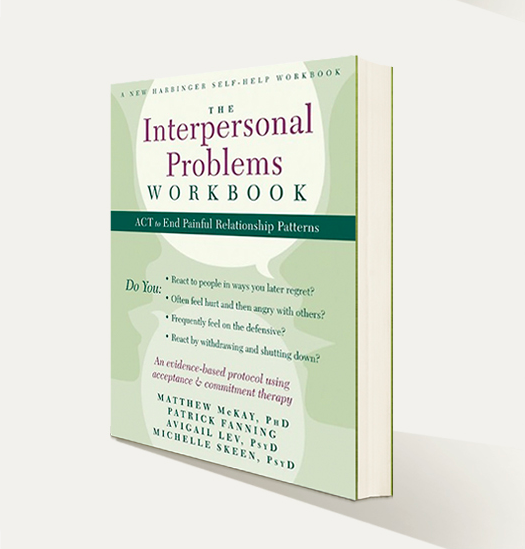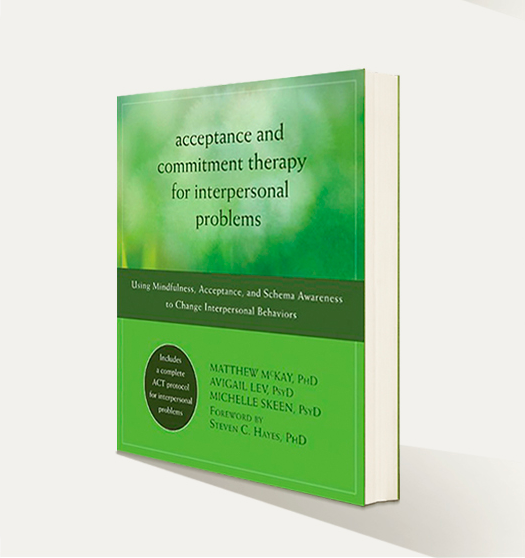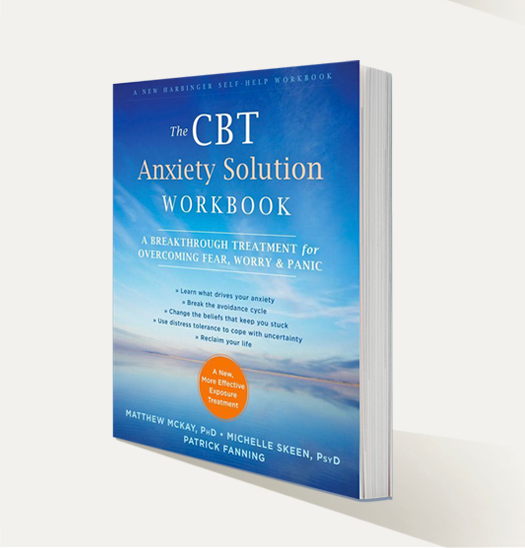My radio show on Thursday November 8, 2018
This week on Relationships 2.0 my guest is Margaret Winslow author of Smart Ass: How a Donkey Challenged Me to Accept His True Nature & Rediscover My Own
 About the book: How do you resolve a midlife crisis? Margaret Winslow, an overworked college professor in New York City, answered a for-sale ad for a “Large White Saddle Donkey.” Hilarity ensued, along with life-threatening injuries and spirit-enriching insight. Walk with Winslow and Caleb the donkey through training traumas, expert-baffling antics, and humiliating races, and share in Winslow’s gradual understanding of Caleb’s true, undeniable gifts: a willingness to be true to himself no matter the circumstances, to trust, and to forgive. As she and Caleb learn to thrive, you’ll learn the importance of being true to your own pure and powerful self.
About the book: How do you resolve a midlife crisis? Margaret Winslow, an overworked college professor in New York City, answered a for-sale ad for a “Large White Saddle Donkey.” Hilarity ensued, along with life-threatening injuries and spirit-enriching insight. Walk with Winslow and Caleb the donkey through training traumas, expert-baffling antics, and humiliating races, and share in Winslow’s gradual understanding of Caleb’s true, undeniable gifts: a willingness to be true to himself no matter the circumstances, to trust, and to forgive. As she and Caleb learn to thrive, you’ll learn the importance of being true to your own pure and powerful self.
About the author: In addition to an unwitting wrangler of a rambunctious donkey named Caleb, Margaret Winslow is a field geologist with over thirty years of wilderness experience in Tierra del Fuego, Patagonia, Antarctica, Alaska, and the Caribbean. Her award-winning travel memoirs have been featured on interviews on NPR’s “West Coast Live,” Bonnie D. Graham’s “Read My Lips” on blogtalkradio, and the Tony Kilgallin Show on NapaTV. She has published over thirty papers in international scientific journals. Her fieldwork on earthquake hazards and archaeological settlement patterns in Alaska and Chile is featured in the PBS series “Fire on the Rim.” She is Professor Emerita of Earth Sciences at the City College of New York. She lives in the lower Hudson valley of New York with her husband, Joe Stennett, a retired oceanographer. Her hobbies include continuing attempts to train her donkey, memoir and mystery writing, singing, and hiking.
My radio show on Thursday May 24, 2018
This week on Relationships 2.0 my guest is Michelle Fondin author of Chakra Healing for Vibrant Energy: Exploring Your 7 Energy Centers with Mindfulness, Yoga and Ayurveda
 About the book:
About the book:
Tap into your body’s vital source of energy and wellness
Positioned along the spinal axis, from the tailbone to the crown of the head, the seven main energy centers of the body are called chakras. Author Michelle Fondin explores and explains each one in the seven chapters of this book, demystifying their role in facilitating healing, balance, personal power, and everyday well-being. She offers meditations and visualizations, yoga postures, breathing exercises, and Ayurvedic dietary practices to learn about and work with the chakras. You may choose to follow the healing practices for seven days, devoting one day to each chakra; for seven weeks, focusing on each chakra for a week at a time; or at your own pace, spending as long as you need on each chakra. Whether you are experiencing an illness brought on by imbalance, feeling sluggish because of seasonal changes, or simply wishing to deepen your study of the subtle body, you will find healing and rejuvenation while discovering the power of these vibrant energy vortices, your chakras.
About the author:
Author of The Wheel of Healing: An Easy Guide to an Ayurvedic Lifestyle, Help! I Think My Loved One Is an Alcoholic: A Survival Guide for Lovers, Family, & Friends and owner Fondin Wellness, Michelle Fondin practices as an Ayurvedic Lifestyle Counselor, yoga and meditation teacher. She holds a Vedic Master certificate from the Chopra Center and has worked with Drs. Deepak Chopra and David Simon at Chopra Center events teaching yoga and meditation. Michelle also writes for Chopra.com. Michelle regularly sees clients in Herndon, Virginia, teaching them how to live an Ayurvedic Lifestyle and achieve optimal wellness. She’s a member of the National Ayurvedic Medical Association, The Association of Ayurvedic Professionals of North America and Yoga Alliance.
Check out all of Michelle Fondin’s videos on YouTube on Ayurveda, Yoga, Loving an Alcoholic, and Healthy Living: https://www.youtube.com/user/MichelleFondinAuthor.
My radio show on Thursday March 8, 2018
This week on Relationships 2.0 my guest is Julie M. Simon author of When Food Is Comfort: Nurture Yourself Mindfully, Rewire Your Brain, and End Emotional Eating
 About the book:
About the book:
If you regularly eat when you’re not truly hungry, choose unhealthy comfort foods, or eat beyond fullness, something is out of balance. Recent advances in brain science have uncovered the crucial role that our early social and emotional environment plays in the development of imbalanced eating patterns. When we do not receive consistent and sufficient emotional nurturance during our early years, we are at greater risk of seeking it from external sources, such as food. Despite logical arguments, we have difficulty modifying our behavior because we are under the influence of an emotionally dominant part of the brain.
The good news is that the brain can be rewired for optimal emotional health. When Food Is Comfort presents a breakthrough mindfulness practice called Inner Nurturing, a comprehensive, step-by-step program developed by an author who was herself an emotional eater. You’ll learn how to nurture yourself with the loving-kindness you crave and handle stressors more easily so that you can stop turning to food for comfort. Improved health and self-esteem, more energy, and weight loss will naturally follow.
About the author:
Julie M. Simon, MA, MBA, LMFT, is a licensed psychotherapist and life coach with more than twenty-seven years of experience helping overeaters stop dieting, heal their relationships with themselves and their bodies, lose excess weight, and keep it off. She is the author of The Emotional Eater’s Repair Manual and the founder of the popular Twelve-Week Emotional Eating Recovery Program. She lives in Los Angeles.
My radio show on Thursday February 8, 2018
This week on Relationships 2.0 my guest is Pankaj Vij, MD, FACP author of Turbo Metabolism: 8 Weeks to a New You, Preventing and Reversing Diabetes, Obesity, Heart Disease, and Other Metabolic Diseases by Treating the Causes
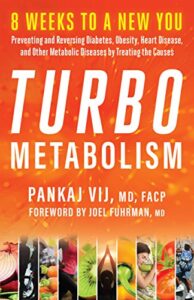 About the book:
About the book:
As the modern Western lifestyle spreads around the globe, so too does metabolic syndrome — a cluster of symptoms that increases the risk of developing heart disease, stroke, diabetes, and other conditions. The good news: metabolic syndrome can be tamed by a sensible program of exercise, natural foods, stress management, and quality sleep. In this concise and lively book, Dr. Vij distills a mass of medical research into a simple, effective program for vibrant health. Avoiding fads and gimmicks, he provides practical advice, case studies of ordinary people, and brief sections that debunk common medical myths. By following Dr. Vij’s evidence-based methods, you can manage diabetes, avoid related metabolic conditions, lose weight, and live a healthier, happier life with energy to spare.
About the author:
Pankaj Vij, MD, FACP, has helped thousands of patients lose weight, manage chronic health conditions, and improve their physical fitness. Board certified in internal medicine and obesity medicine, Dr. Vij has been practicing medicine since 1997. He lives in the San Francisco Bay Area.
My radio show on Thursday September 14, 2017
This week on Relationships 2.0 my guest is Andrea Lieberstein author of Well Nourished: Mindful Practices to Heal Your Relationship with Food, Feed Your Whole Self, and End Overeating
 About the book:
About the book:
Many people use food to nourish themselves when what they are really hungry for is other forms of nourishment. What if we were living a life where we felt well-nourished emotionally, intellectually, physically, psychologically, spiritually, socially, and creatively? What if we were mindfully present to receive, experience, plan for, and engage in nourishing activities, moments, and practices regularly that fed us on many levels. What if we were able to maintain an inner sense of balance and nourishment even when things are not perfectly in balance, and have the tools and practices to do so rather than turn to food at those times?
This book will show readers how to develop a mindful relationship to food and craft a well-nourished life with step-by-step examples, tools, and mindful practices that can be individualized to their unique needs.
About the author:
Andrea Lieberstein, MPH, RDN, RYT, is a registered dietitian nutritionist, mindful eating and mindfulness-based stress reduction (MBSR) instructor, and coach. Andrea was a leader in developing and implementing mindfulness and mind-body programs at Kaiser Permanente Northern California for over 20 years and is a contributing author to the chapter on meditation in The Stress Reduction and Relaxation Training Workbook(5th edition), New Harbinger Press.
Andrea incorporates mindfulness-based eating awareness training (MB-EAT), MBSR, and other mindful eating and mindfulness-based mind-body practices in her private practice working with individuals on a wide range of nutritional challenges: nutrition for optimal well-being, disordered eating, overeating, weight management, body image, and stress-related issues and health concerns.
Andrea holds degrees from Stanford University and the University of California at Berkeley.
My radio show on Thursday September 7, 2017
This week on Relationships 2.0 my guest is Paul J. Christo, M.D. author of Aches and Gains: A Comprehensive Guide to Overcoming Your Pain
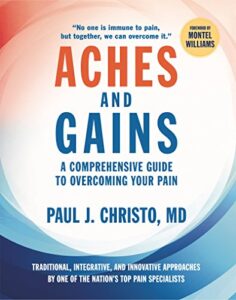 About the book:
About the book:
Pain is often treatable but doctors, medical professionals, and patients don’t understand the intricacies of chronic pain. Millions who suffer from pain become hopeless. With Aches and Gains, Dr. Paul Christo, a Johns Hopkins physician and leading pain specialist sheds new light on what it means to live with and overcome chronic pain. Dr. Christo shares celebrity interviews, including Naomi Judd, Lisa Swayze, Montel Williams, Ally Hilfiger, and Clay Walker, from his Sirius XM radio show Aches and Gains®, and stories from patients who have found a way to overcome the pain that once controlled their lives. Offering traditional, integrative, and innovative methods of easing pain, the book is a life-changing tool for anyone associated with pain including pain sufferers themselves, doctors, nurses, medical professionals, and caregivers.
Features a foreword by renowned talk show host Montel Williams.
About the author:
Dr. Paul Christo is one of America’s leading pain experts and hosts Aches and Gains®, the first national radio talk show dedicated to overcoming pain, stress reduction, and healthy living. Listed as a Top Doctor and in the top 1% for Pain Management by U.S. News & World Report, Dr. Christo is widely consulted by the media for his expertise in pain diagnosis and treatment.
My radio show on Thursday June 15, 2017
This week on Relationships 2.0 my guest is Suzanne Scurlock-Durana author of Reclaiming Your Body: Healing From Trauma and Awakening to Your Body’s Wisdom
About the book:
A guided tour through the body’s innate healing powers
Many of us have learned to ignore, deny, or even mistrust the wise messages our bodies give us. The result is that when trauma strikes, a time when we need every aspect of our beings to master the challenge, we may find ourselves disconnected from our greatest strengths. Suzanne Scurlock-Durana, who has spent thirty years studying the gifts of the body and teaching thousands how to reclaim them, began to recognize this strength, which she likens to a GPS, when she herself experienced a life-threatening trauma. Here she walks readers through different areas of the body, revealing the wisdom they hold and how to reconnect with that wisdom. As she shows in this warm, compassionate book, the body’s abilities are always available; we must simply reconnect with them.
About the author:
Suzanne Scurlock-Durana’s Healing from the Core curriculum, combined with CranioSacral therapy and other bodywork modalities, creates a complete, body-centered guide to awareness, healing, and joy. She is also the author of Full Body Presence. She teaches around the world and lives in Reston, Virginia.
My radio show on Thursday March 2, 2017
This week on Relationships 2.0 my guest is Evan M. Forman PhD author of Effective Weight Loss: An Acceptance-Based Behavioral Approach
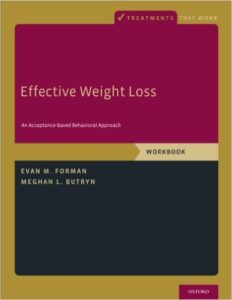 About the book:
About the book:
The obesity epidemic is one of the most serious public health threats confronting the nation and the world. The majority of overweight individuals want to lose weight, but the overall success of self-administered diets and commercial weight loss programs is very poor. Scientific findings suggest that the problem boils down to adherence. The dietary and physical activity recommendations that weight loss programs promote are effective; however, people have difficulty initiating and maintaining changes.
Effective Weight Loss presents 25 detailed sessions of an empirically supported, cognitive-behavioral treatment package called Acceptance-Based Behavioral Treatment (ABT). The foundation of this approach is comprised of the nutritional, physical activity, and behavioral components of the most successful, gold-standard behavioral weight loss programs. These components are synthesized with acceptance, willingness, behavioral commitment, motivation, and relapse prevention strategies drawn from a range of therapies. ABT is based on the idea that specialized self-control skills are necessary for weight control, given our innate desire to consume delicious foods and to conserve energy by avoiding physical activity. These self-control skills revolve around a willingness to choose behaviors that may be perceived as uncomfortable, for the sake of a more valuable objective. The Clinician Guide is geared towards helping administer treatment, and the companion Workbook provides summaries of session content, exercises, worksheets, handouts, and assignments for patients and clients receiving the treatment. The books will appeal to psychologists, primary care physicians, nutritionists, dieticians, and other clinicians who counsel the overweight.
About the author:
Evan Forman, PhD, is a Professor of Psychology at Drexel University and Co-Director of the Laboratory for Innovations in Health-Related Behavior Change. He also serves as Director of Graduate Studies and Chair of the Society for Clinical Psychology’s Committee on Science and Practice and is Past-President of the Philadelphia Behavior Therapy Association. He has been the lead investigator of several National Institute of Health-sponsored trials, including two comparing the effectiveness and processes of traditional cognitive therapy to newer acceptance-based behavior therapies. He also has been funded to examine the feasibility and effectiveness of smartphone and computerized neurocognitive training interventions for weight control.
My radio show on Thursday February 23, 2017
This week on Relationships 2.0 my guest is Evan M. Forman PhD co-editor/author of Mindfulness and Acceptance for Treating Eating Disorders & Weight Concerns: Evidence-based Interventions
 About the book:
About the book:
Disordered eating, negative body image, and problems with weight have become an epidemic—and research shows that traditional treatments are not always effective. This professional resource offers proven-effective interventions using mindfulness and acceptance for treating clients with disordered eating, body image, or weight issues—and for whom other treatments have failed.
Millions of people in the United States suffer from eating disorders, and dissatisfaction with weight and body type—even in individuals whose weight is considered normal—is similarly widespread. In addition, more than half of Americans could benefit from healthy weight loss. Unfortunately, not all people with eating disorders or weight concerns respond to traditional therapeutic interventions; many continue to suffer significant symptoms even after treatment. What these clients need is an integrated therapeutic approach that will prove effective in the long run—like the scientifically backed methods in this much-needed clinical guide.
Edited by Ann F. Haynos, Jason Lillis, Evan M. Forman, and Meghan L. Butryn; and with contributors including Kay Segal, Debra Safer, and Hugo Alberts; Mindfulness and Acceptance for Treating Eating Disorders and Weight Concerns is the first professional resource to incorporate a variety of proven-effective acceptance- and mindfulness-based approaches—such as acceptance and commitment therapy (ACT), dialectical behavior therapy (DBT), and mindfulness-based cognitive therapy (MBCT)—into the treatment of persistent disordered eating, body image issues, and weight problems.
With these evidence-based interventions, you’ll be ready to help your clients move beyond their problems with disordered eating, body dissatisfaction, and weight management once and for all.
About the editor/author:
Evan M. Forman, PhD, is professor and director of graduate studies for the department of psychology at Drexel University in Philadelphia, PA, as well co-director of the Laboratory for Innovations in Health-Related Behavior Change. His research, which is funded by the National Institutes of Health and the Obesity Society, focuses on using technology and new behavioral frameworks to enhance interventions for health behavior change, especially obesity.
My radio show on Thursday February 2, 2017
This week on Relationships 2.0 my guest is Ann Haynos PhD co-editor/author of Mindfulness and Acceptance for Treating Eating Disorders & Weight Concerns: Evidence-based Interventions

About the book:
Disordered eating, negative body image, and problems with weight have become an epidemic—and research shows that traditional treatments are not always effective. This professional resource offers proven-effective interventions using mindfulness and acceptance for treating clients with disordered eating, body image, or weight issues—and for whom other treatments have failed.
Millions of people in the United States suffer from eating disorders, and dissatisfaction with weight and body type—even in individuals whose weight is considered normal—is similarly widespread. In addition, more than half of Americans could benefit from healthy weight loss. Unfortunately, not all people with eating disorders or weight concerns respond to traditional therapeutic interventions; many continue to suffer significant symptoms even after treatment. What these clients need is an integrated therapeutic approach that will prove effective in the long run—like the scientifically backed methods in this much-needed clinical guide.
Edited by Ann F. Haynos, Jason Lillis, Evan M. Forman, and Meghan L. Butryn; and with contributors including Kay Segal, Debra Safer, and Hugo Alberts; Mindfulness and Acceptance for Treating Eating Disorders and Weight Concerns is the first professional resource to incorporate a variety of proven-effective acceptance- and mindfulness-based approaches—such as acceptance and commitment therapy (ACT), dialectical behavior therapy (DBT), and mindfulness-based cognitive therapy (MBCT)—into the treatment of persistent disordered eating, body image issues, and weight problems.
With these evidence-based interventions, you’ll be ready to help your clients move beyond their problems with disordered eating, body dissatisfaction, and weight management once and for all.
About the editor/author:
Editor Ann F. Haynos, PhD, is a clinical psychologist and T32 postdoctoral research fellow funded by the National Institute of Mental Health through the department of psychiatry at the University of Minnesota Medical Center. Haynos’s research interests pertain to identifying the underlying mechanisms associated with the development and maintenance of disordered eating, and developing and evaluating treatments for eating disorders and weight concerns. In a clinical capacity, Haynos has worked primarily with individuals with eating disorders using dialectical behavior therapy (DBT) and acceptance and commitment therapy (ACT) models.
 About the book: How do you resolve a midlife crisis? Margaret Winslow, an overworked college professor in New York City, answered a for-sale ad for a “Large White Saddle Donkey.” Hilarity ensued, along with life-threatening injuries and spirit-enriching insight. Walk with Winslow and Caleb the donkey through training traumas, expert-baffling antics, and humiliating races, and share in Winslow’s gradual understanding of Caleb’s true, undeniable gifts: a willingness to be true to himself no matter the circumstances, to trust, and to forgive. As she and Caleb learn to thrive, you’ll learn the importance of being true to your own pure and powerful self.
About the book: How do you resolve a midlife crisis? Margaret Winslow, an overworked college professor in New York City, answered a for-sale ad for a “Large White Saddle Donkey.” Hilarity ensued, along with life-threatening injuries and spirit-enriching insight. Walk with Winslow and Caleb the donkey through training traumas, expert-baffling antics, and humiliating races, and share in Winslow’s gradual understanding of Caleb’s true, undeniable gifts: a willingness to be true to himself no matter the circumstances, to trust, and to forgive. As she and Caleb learn to thrive, you’ll learn the importance of being true to your own pure and powerful self.





